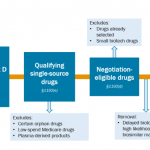In a recent study, researchers have highlighted the crucial role of molecular chaperones, specifically cyclophilin A, in maintaining the functionality of hematopoietic stem cells. These cells play a vital role in generating red blood cells and immune cells, and any age-related changes in their function can have significant implications for overall health. The immune system undergoes alterations with age, and disturbances in hematopoiesis are among the contributing factors. The research suggests that increasing the expression of cyclophilin A could potentially enhance the function of hematopoietic stem cells in older individuals, leading to improved health outcomes.
Hematopoietic stem cells are known for their exceptional longevity and ability to continuously replenish blood cells while maintaining a youthful profile throughout an organism’s lifespan. As cells age, the accumulation of misfolded proteins can lead to toxic stress and disrupt cellular function. Previous studies have revealed the importance of molecular chaperones, such as cyclophilins, in preserving protein conformation and preventing the accumulation of misfolded proteins. By studying mice, researchers found that cyclophilin A is a prevalent chaperone in HSCs and that its decreased expression in aged cells accelerates the aging process. However, reintroducing cyclophilin A into aged HSCs has been shown to enhance their function, indicating its potential as a key factor in the longevity of hematopoietic stem cells.
For more information on this research, visit: https://blogs.bcm.edu/2024/04/30/from-the-labs-uncovering-the-secret-of-long-lived-stem-cells/.





